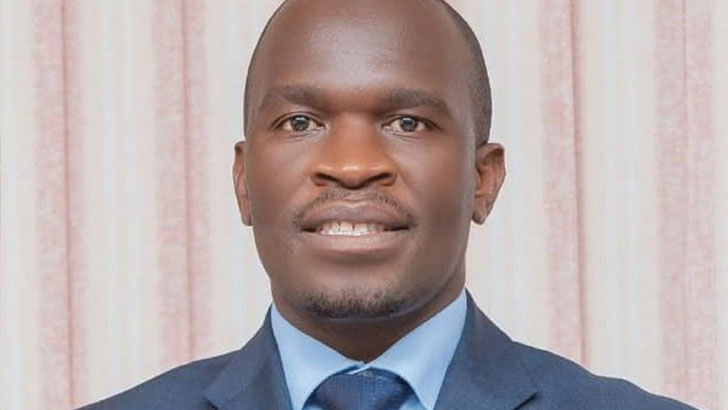Toxic deals
The office of the Attorney General (AG) has unearthed deals in the power sector which it fears have potential to bankrupt the Electricity Supply Corporation of Malawi (Escom) if not rectified.
In July this year, the AG Thabo Chakaka-Nyirenda instructed Escom to temporarily suspend dormant power purchase agreements (PPAs) and implementation agreements (IAs) as well as not to sign new contracts until his office finishes reviewing the agreements.
In the on-going review of the PPAs and IAs, the AG says he has discovered several clauses that he is uncomfortable with as they have potential to run down Escom.
In a response to a questionnaire this week, Ministry of Justice spokesperson Frank Namangale listed several clauses that he said the AG was not comfortable with.
They include a take-or-pay clause compelling Escom to pay an investor 100 percent of agreed power even if less supplied.
For example, if the agreement was for the investor to supply 100 megawatts (MW), but, for some reasons, they supplied only 40 percent, Escom is still required to pay for the 100 MW, a situation the AG fears can potentially bankrupt the power utility.

The AG also found as untenable a Force Majeure clause, which is a legal instrument, compelling the State to still pay the service provider where the investor was unable to fulfil contractual agreements due to unforeseen circumstances.
Another agreement the AG is not comfortable with binds government to source foreign currency on behalf of the investors that signed the contracts with Escom.
Said Namangale: “The agreement in the contract in question specifically provides in black and white that government should source foreign currency, failing which, government would be guilty of expropriation and would be required to pay for the value of the investment and compensation for loss of business for 20 years.
“The AG was uncomfortable with this clause because already foreign currency is scarce and electricity is sold in Malawi kwacha.”
The AG also found as unrealistic a clause in the contracts requiring government to issue sovereign guarantees to the investors.
Sovereign guarantees create contingent liability on government and would exacerbate the country’s debt burden which is already at unsustainable level.
“The AG was again not in favour of a proposal by the now disbanded Power Market Limited, which proposed introduction of a power price stabilisation fund, where a certain amount of money upon purchase of electricity by Escom customers would have been going to this fund for other eventualities in the power sector.”
This would have raised power tariffs thereby making electricity very expensive, a development that would have placed a bigger burden on the customers.
Namangale said following the discovery of the anomalies, his office is undertaking legal consultations which will need more time to conclude but did not specify how long the review would be extended.
Former minister of Natural Resources, Energy and Environment Grain Malunga earlier observed that the suspicious deals raise serious questions on the regulation of the energy sector.
“If this is true then we have a big problem. We have Mera [Malawi Energy Regulatory Authority] which should have done due diligence. We need to question Mera if it is undertaking its functions in accordance with its mandate of regulating the sector,” he said.
Mera, which regulates the energy sector, has for the past two weeks not responded to our questionnaire despite several reminders to explain how such deals were made.
A few months ago, Escom was pushing for a waiver to negotiate a deal with an independent power producer (IPP) despite the AG’s temporary suspension of all unsolicited power deals.
Escom’s push, prompted the Anti-Corruption Bureau (ACB) to issue a restriction notice to Escom chief executive officer Kamkwamba Kumwenda stopping any dealing with Westland Energy Power, which formed a consortium with Africa Consolidated Services Group (ACSG).
A week after the AG’s instruction for temporary suspension, Escom wrote Minister of Energy Ibrahim Matola seeking approval to allow Westland Energy Power to make a full feasibility study and negotiate for a PPA.
The letter further stated that Westland had developed a prototype able to generate 40 kilowatt (kW) which has not been deployed elsewhere and that it offered to provide 300 megawatts (MW) capacity to Malawi.
In another letter dated August 1 2023, Secretary for Energy Alfonso Chikuni wrote the AG to inform him of the request from Escom to the minister. This letter suggested that in case he granted a waiver, contested clauses needed to be carefully examined.
Chikuni confirmed writing the letter and that he was only communicating to the AG based on Escom’s request for approval from the minister.
He said: “Considering the minister’s desire for the Attorney General to grant approval before proceeding to issue approval to Escom as a single buyer, I [wrote] a letter to the AG accordingly.
“However, since the AG had previously expressed concerns regarding the form and type of the PPA, I emphasised in the letter that the waiver should not overlook these raised issues.”
In an earlier written response, Kumwenda said it was actually Escom which requested for AG’s assistance to review the PPAs because they wanted to follow procedures.
On why Escom was seeking a waiver to deal with Westland Energy before the AG’s office concluded the review, he said he could not remember making such a request.
Earlier in June, Escom also indicated that it was reviewing a number of PPAs signed between independent power producers (IPPs) and the power utility during the Peter Mutharika administration.
About 19 of those were signed on the eve of the 2019 Tripartite Elections when the Democratic Progressive Party was in power.
Government is targeting to expand power generation to 1 000 MW by 2025.





